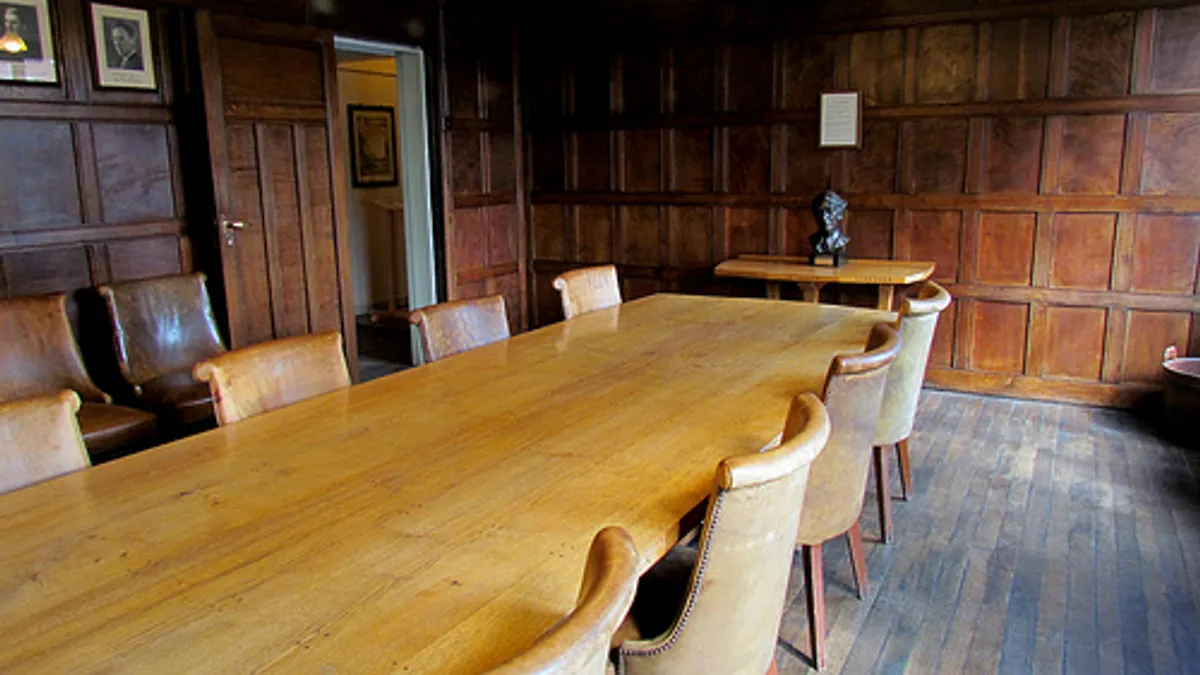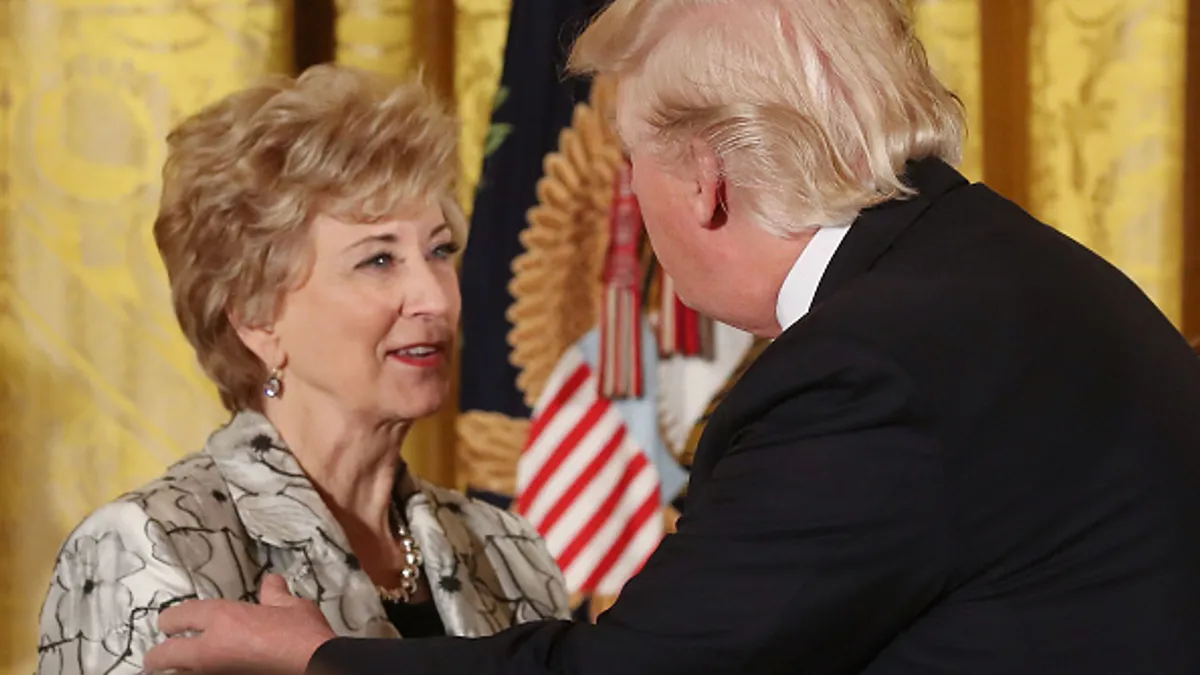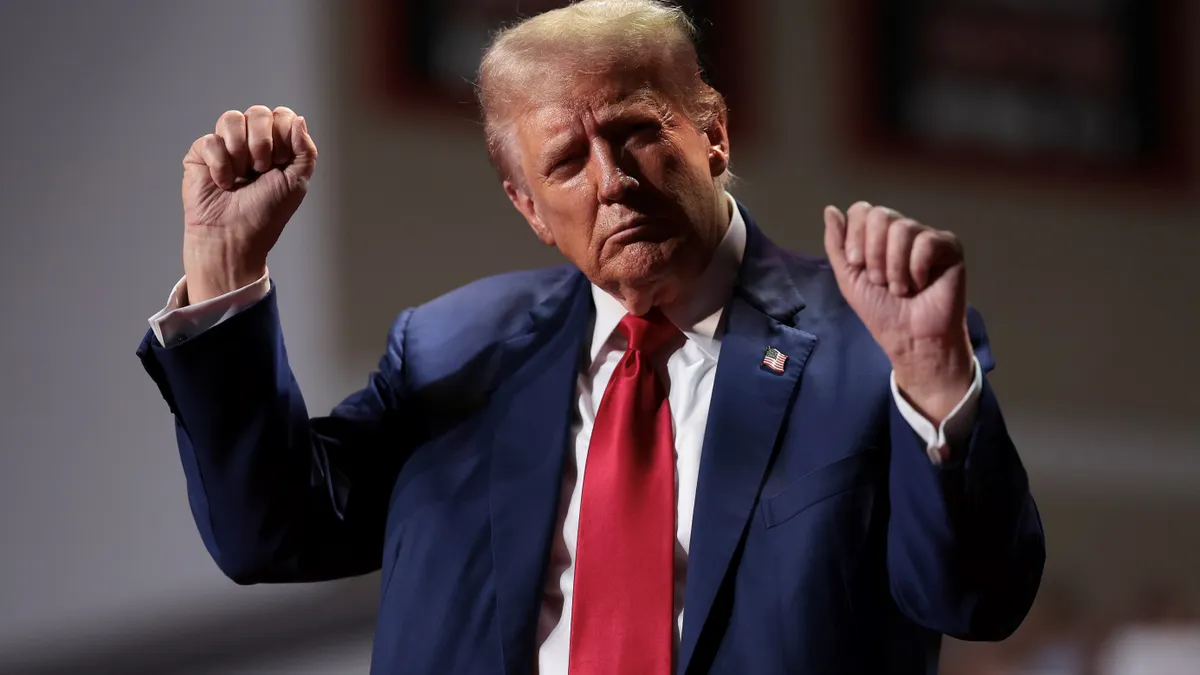With sweeping changes in technology, student profile and need, and economic support for higher education, colleges and universities nationwide find themselves in a constant cycle of identifying and responding to pressing institutional needs. The top priority in addressing these issues, for many board executives, is the demand to find sustainable leadership.
Some institutions have ventured outside of academe to find talent in fundraising, academic development and campus expansion. Institutions have drawn talent from corporate, military and legislative sectors in efforts to respond the persistent questions of how to raise or make more money, and how to make the case for higher education in a society where confidence in its value is waning.
We spoke with three leading higher education officials — Association of Governing Boards Member and Delaware State University Board Chairman David Turner, American Association of State Colleges and Universities Millennium Leadership Institute Director Mary Evans Sias, and Council for Higher Education Accreditation President Judith Eaton — to gather their insights on the most important traits in identifying presidential talent for the 21st century college enterprise: flexibility and sustainability.
Flexibility
EATON: “Boards have to be looking for people who are nimble intellectually and politically. Experience with handling emerging situations and out there in social media, are instantly public. As campuses are dealing with sexual assault issues, freedom of speech, diversity and finance, we are discovering that we may have to take dramatically different approaches to handling and reviewing these areas of operation. Even from an accreditation perspective, is there something that accreditation needs to do in these areas beyond what it is doing now? A well-organized college or university has leadership that can take a clear understanding of these issues as the change, and adapt to them effectively.”
TURNER: “I think the skill set is transformational leadership. At one point, any given school would’ve told you fundraising is the most important thing. At another time, they would’ve said that we needed someone to come in for academic development. Some, if not most, are going through financial issues, and having business acumen is the most important thing.”
“Transformational leader can transform the organization to embrace and succeed in any of those environments. What happens when we move to operational execution? 'Rah-Rah' doesn’t work. In order to survive, you have to transformational. But if your board is not transformational, you’re dead in the water. At Delaware State we’ve welcomed several new members, and we have become a transformation board. We conduct two retreats a year to become a consequential board. We focus on two things: student success and sustainability. You’re never quite there, but we are positioned beautifully to transform.”
SIAS: "Most research indicates that so many problems on campus are creating situations where people don’t know where to turn to solve them. Some people are very into “we’ve always done it this way.” Flexible leadership requires the breaking up of silos, being strong in performance appraisals and personnel management and training, understanding the varying perspectives among race and gender. This trends to be a little easier for executives from student affairs because of the training and work experience, but it matters to leaders from all backgrounds. Leaders will also must focus on communication skills with social media, and specifically, in relationships with boards and faculty."
Sustainability
TURNER: “Sustainability requires a set of core goals, typically borne out of a solid strategic plan. That means recruiting and retaining the right students, and not having them graduate and go across the street to Home Depot for work; but giving them what they need. This is a challenge for many institutions as state funding has been cut back, federal funding, grants continue to be a challenge. Many of us operate at the edge, so finding leadership and charging it with building a sustainability program with revenue streams — graduate study, international engagement, distance learning, in addition to campaigns for fundraising, and private public partnerships bolster this effort.”
SIAS: “Sustaining relationships and quickly learning how to read people is key. Presidents can be highly effective as managers and executioners, but not paying attention to the value of relationships can be destructive in many instances. Being tied into wanting a position, and working to meld yourself into the work of the position without considering collaboration will harm the effort to create shared governance.”
“Attitudes and understanding audiences are critical. The ability to communicate with students, to appreciate diversity, both ethnic and ideological, on the management team is also critical. An overarching communication strategy for all stakeholders will help in leveraging validation of what your campus is doing, and this goes for the campus community and the surrounding community. Also, developing the strategy to make the presidency a source of thought leadership on various subjects is important in building the positioning of the campus, and extending this to faculty and researchers on campus helps. It’s never you; it’s always ‘us.’”
EATON: “The are some aspects of shared governance and competent administration which should guide how trustees need to operate, that I believe are the foundation of good personnel practices and institutional sustainability. I think that institutions should want to have leadership coming from academic administration and the board that also involves faculty, and other stakeholders who can understand the major set of challenges at the moment. Sound administrative structure accounts for all perspectives.”
















